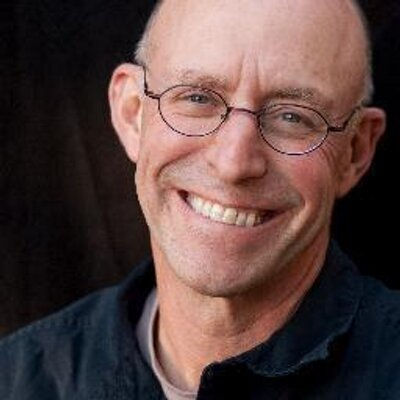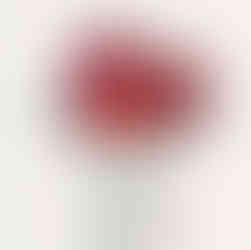Eat food - rule no.1
- Feb 10, 2023
- 6 min read
"Eat food. Not too much. Mostly plants." Michael Pollan

The above quote is probably the most famous modern quote on food around. It was made by Michael Pollan an American journalist in his book In Defense of Food and is quoted endlessly by those opposed to 'processed foods' and the mostly abysmal Western diet, particularly in America from whence he comes. In food, as in all things it seems to me, America is a land of extremes. On one side you have the above Western diet, full of processed foods, fats, sugar, carbohydrates, etc. leading to the massive obesity, type 2 diabetes, etc. pandemic. And on the other you have Gwyneth Paltrow and her ilk with their 'healthy' nutrition advice, which in itself has opposing extremes as it ranges from the downright weird - and, in some cases - dangerous, to the eminently sensible and attractive.
This morning I went for a short walk - half what I normally do - because it's hot and as I tidied up the street library a little I found the above small volume. Thank you whoever put it in there, because I think I now have another writer's block option - deal with all (probably not all) of his 83+ rules, one by one. So today it's no. 1 - Eat Food.

He's a genial looking guy isn't he? There's a sense of humour in that smile and those eyes. Somebody you might agree with. So let me begin with a few things from his two introductions. Because this is the second edition of the book. The first one was so popular that people flooded him with a whole lot of new rules, from which he selected nineteen to add to his original 83, and also, after seeing an exhibition of the work of the artist Maira Kalman, he decided to ask her to illustrate it. To which she readily agreed. It sounds daunting, but it's a small book and so far so sensible. We shall see if we get into the whole artisan, organic stuff as we go on. I have my doubts about all of that as you know.
On the first page we find this:
"Consider first the complexity that now attends this most basic of creaturely activities. ... Most of us have come to rely on experts of one kind or another to tell us how to eat ... We may not always heed these experts' advice, but their voices are in our heads every time we order from a menu or wheel down the aisle in the supermarket."
I have written a bit about this myself - particularly with relevance to the supermarket - where, it seems to me, you need excellent eyesight and a degree in all manner of connected expertises. Now I haven't read the book as a whole as yet, so I don't know whether he is including all the ethical and environmental stuff in that statement - at this stage I suspect not. I suspect he is only focussing on the nutritional aspects, because he then says:

"It's gotten to the point where we don't see foods anymore but instead look through them to the nutrients (good and bad) they contain, and of course to the calories - all these invisible qualities in our food that, properly understood, supposedly hold the secret to eating well."
And of course just to confuse things even more, the 'science' changes all the time. He is actually a bit dismissive of nutrition science overall, concluding:
"Nutrition Science, which after all only got started less than two hundred years ago, is today approximately where surgery was in the year 1650 - very promising, and very interesting to watch, but are you ready to let them operate on you?"
Well no, but then most of modern practical science in the fields of medicine and everything connected to it - well any modern science really - might have built on past experiments, but, is probably only now approaching anything remotely like a final answer. At any point in history you can only do your best by what you know. And we shall never have the answers to life, the universe and everything.
So he goes on to write about the evils of the 'Western diet' - we all know them - and almost concludes by saying:
"Human beings ate well and kept themselves healthy for millennia before nutritional science came along to tell us how to do it."
Really? They certainly did not keep themselves healthy because they didn't live long. OK a lot of that was to do with basic hygiene and diseases for which there was no cure, not to mention accidents and injuries that could not be repaired successfully. Infant mortality anyone? But their food was also not necessarily healthy because of inadequate storage, preserving and hygiene again, not to mention the lack of variety. And being a hunter gatherer is dangerous, not just from poisonous plants and aggressive prey, but also from scarcity. Besides they still haven't explained why extreme diets, such as the Inuit diet of seal blubber, and the Masai diet of high cholesterol meat and milk, keep their communities healthy.
So rule number one: Eat Food.
By which he means - don't eat any processed food. Illustrated in the book by the pomegranates on the very first page of the book, and the Cheezle packet opposite rule no. 1. "More and less" it says which is pretty clever - makes you fat and contains less nutrients all at the same time.
He describes 'not food' as 'edible foodlike substances.' Which is indeed an interesting concept. Where does that leave all those vegetarians and vegans who eat meat and fish like things made from soy and so on? I must confess I don't really understand why vegetarians in particular would eat those imitation meat and fish products. After all there are so very many wonderful vegetarian recipes around that just use vegetables - and dairy products. Vegans now are rather more difficult, as it seems to me that a vast array of foods are just not possible without some weirdly manufactured product. I suppose it is possible but is it healthy? I think the verdict is possibly still out on that one. I have a few vegan friends and every time I have to cook for them I find all sorts of weird and wonderful ingredients that seem to me to be quite unnatural.
But even we - the majority - who are still omnivores - and who still eat a lot of vegetables - a Mediterranean diet even - have to contend with how that food is produced. It might be food - real food, but there are so many questions around it What chemicals are involved in its production? Who does the hard work - are they paid enough - or at all? How is it packaged? Are the agricultural practices environmentally clean? Are their combine harvesters, for example, using fossil fuels to operate? Where does the water required come from? How does it get to us? And big business and that whole can of worms is always involved somehow or somewhere along the long line from seed or chick to you. The questions go on and on.

The only way to really know would be to grow everything you eat yourself, and even then you might not know everything you should about how the seeds and seedlings you use are produced, where the mulch you use comes from ... And of course you can't grow everything yourself. Not unless you are a subsistence farmer in some underdeveloped corner of the world - if any of those exist. And not desirable anyway. Hard work for small reward and a limited diet. But then Michael Pollan is not talking about or to that world. He is talking to us westerners feeding ourselves from the supermarket shelves.
"Seventeen thousand new products show up in the supermarket each year, all vying for your food dollar. .. But most of these items ... [are] highly processed concoctions designed by food scientists, consisting mostly of ingredients derived from corn and soy that no normal person keeps in the pantry, and they contain chemical additives with which the human body has not been long acquainted."
The trouble is some of them might be worth considering. Cultured unsalted butter like the French eat - I'm still waiting for that one. Yes, I know - cholesterol ... But it's definitely FOOD in the Michael Pollan sense.
More rules to come every now and then.







Comments